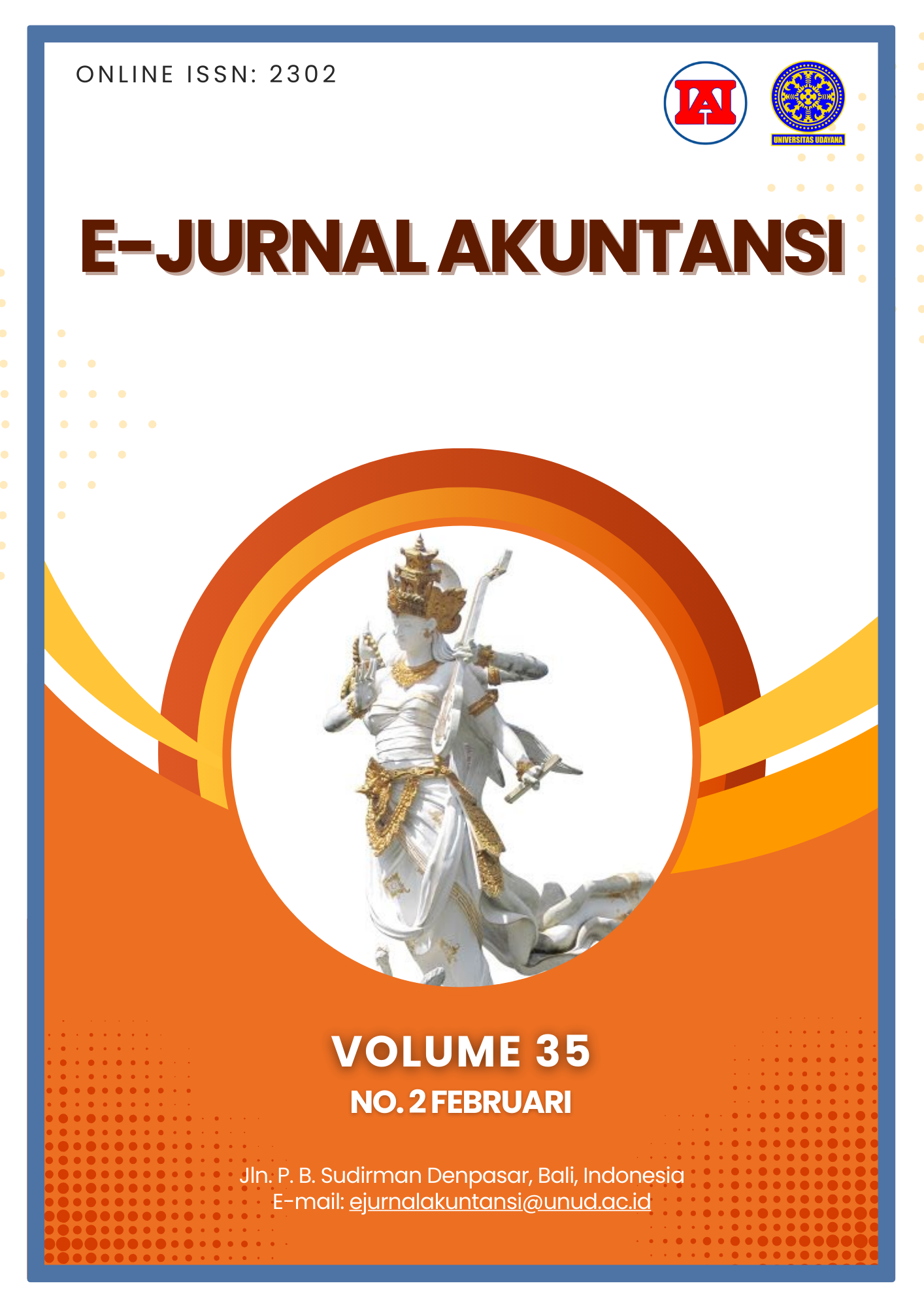Analysis of Employee Readiness to Strengthen the Success of Digital Transformation in Public Institutions
Abstract
This study aims to analyze employee readiness in supporting the successful implementation of digital transformation at the Directorate General of Taxes (DGT). Using a qualitative approach, this research utilizes questionnaires and Focus Group Discussions so as to gain a more detailed perspective. The findings show that although employees show a high level of awareness and motivation, there are still gaps in understanding the implications of the transformation on daily tasks, especially for those with less experience. The complexity of the new system and existing communication challenges highlighted areas for improvement in training and reinforcement strategies. The research concludes that addressing these readiness gaps through targeted interventions, such as enhanced training and clear communication, is critical to sustaining employee engagement and achieving the desired transformation outcomes. This research provides actionable insights for public institutions that are undertaking digital transformation efforts.
Keywords: Change Readiness; Digital Transformation; Public Sector; ADKAR
Downloads
References
Alenezi, M. (2022). Understanding Digital Government Transformation. https://doi.org/https://doi.org/10.48550/arxiv.2202.01797
Calder, A. M. (2013). Organizational Change: Models for Successfully Implementing Change. Undergraduate Honors Thesis, 1–20. https://digitalcommons.usu.edu/honors%0Ahttps://digitalcommons.usu.edu/honors%0Ahttp://digitalcommons.usu.edu/honors
Cockfield, A. J. (2019). Sharing Tax Information in the 21st Century: Big Data Flows and Taxpayers as Data Subjects. Canadian Tax Journal/Revue Fiscale Canadienne, 67(4), 1179–1199. https://doi.org/10.32721/ctj.2019.67.4.sym.cockfield
Darrell M. West. (2011). Digital Government: Technology and Public Sector Performance. https://doi.org/http://dx.doi.org/10.1515/9781400835768
Errida, A., & Lotfi, B. (2021). The determinants of organizational change management success : Literature review and case study. 13, 1–15. https://doi.org/10.1177/18479790211016273
Iverson, T., & Barbier, E. (2021). National and sub-national social distancing responses to COVID-19. Economies, 9(2). https://doi.org/10.3390/economies9020069
Jaaron, A. A. M., Hijazi, I. H., Issa, K., & Musleh, Y. (2021). Technology Analysis & Strategic Management A conceptual model for adoption of BIM in construction projects : ADKAR as an integrative model of change management ADKAR as an integrative model of change management. Technology Analysis & Strategic Management, 0(0), 1–13. https://doi.org/10.1080/09537325.2021.1915975
Kamara, A. K., & Kamara, S. (2023). Exploring the Implementation and Benefit of Digital Reforms in Tax Administration: National Revenue Authority (NRA) Sierra Leone. OALib, 10(02), 1–17. https://doi.org/10.4236/oalib.1109767
Khan, A., Akhtar, N., Khan, M. D., & Habib, R. I. (2020). Informal Economy Enabling Tax Evasion and Money Laundering in Pakistan: An Analytical Study. Review of Politics and Public Policy in Emerging Economies, 2(2), 131–138. https://doi.org/10.26710/rope.v2i2.1760
Lazi, A. (2019). Strategic digital transformation of organisations. 108(Senet), 184–188.
Lindgren, I., & Van Veenstra, A. F. (2018). Digital government transformation: A case illustrating public e-service development as part of public sector transformation. ACM International Conference Proceeding Series. https://doi.org/10.1145/3209281.3209302
Liva, G., Codagnone, C., Misuraca, G., Gineikyte, V., & Barcevicius, E. (2020). Exploring digital government transformation: A literature review. ACM International Conference Proceeding Series, September, 502–509. https://doi.org/10.1145/3428502.3428578
Ly, B. (2024). The Interplay of Digital Transformational Leadership , Organizational Agility , and Digital Transformation. Journal of the Knowledge Economy, 4408–4427. https://doi.org/10.1007/s13132-023-01377-8
Marimuthu, M., Khan, H., & Bangash, R. (2021). Is the fiscal deficit of asean alarming? Evidence from fiscal deficit consequences and contribution towards sustainable economic growth. Sustainability (Switzerland), 13(18). https://doi.org/10.3390/su131810045
Mergel, I., Edelmann, N., & Haug, N. (2019). Defining digital transformation : Results from expert interviews ☆. Government Information Quarterly, 36(4), 101385. https://doi.org/10.1016/j.giq.2019.06.002
Mirza, H., & Prichard, W. (2014). The Political Economy of Tax Reform in Bangladesh: Political Settlements, Informal Institutions and the Negotiation of Reform. In SSRN Electronic Journal. https://doi.org/10.2139/ssrn.2436434
Mukhlis, M., & Tyas, A. A. W. P. (2024). The Role of Change Management in Improving Organizational Performance. Jurnal Ilmiah Manajemen Kesatuan, 12(3), 773–782. https://doi.org/10.37641/jimkes.v12i3.2606
Murty, S. (2019). Discussion Papers in Economics Centre for International Trade and Development Some results from the theory of optimal taxation and their relevance for increasing progressiveness of Indian tax structure.
Novianto, N. (2023). Systematic Literature Review: Models of digital transformation in the public sector. Policy & Governance Review, 7(2), 170. https://doi.org/10.30589/pgr.v7i2.753
Okunogbe, O., & Santoro, F. (2022). The Promise and Limitations of Information Technology for Tax Mobilization. 295–324. https://doi.org/10.1093/wbro/lkac008
Okunogbe, O., & Tourek, G. (2024). How Can Lower-Income Countries Collect More Taxes? The Role of Technology, Tax Agents, and Politics. Journal of Economic Perspectives, 38(1), 81–106. https://doi.org/10.1257/jep.38.1.81
Oreg, S., Bartunek, J. M., & Do, B. (2016). An Affect-Based Model of Recipients ’ Responses to Organizational Change Events. June. https://doi.org/10.5465/amr.2014.0335
Phillips, J., & Klein, J. D. (2023). Change Management : From Theory to Practice. TechTrends, 189–197. https://doi.org/10.1007/s11528-022-00775-0
Prosci. (2020). No Title. The Role of Change Management in Digital Transformation.
Prosci. (2022). No Title. ADKAR and Its Application in Public Sector Change Initiatives.
Sadhani, U., & Kadakol, A. (2023). A Comparative Study on Contribution of Indirect Tax and GST towards GDP of India: An Empirical Analysis. International Journal of Innovative Research in Engineering & Multidisciplinary Physical Sciences, 11(4), 1–8. https://doi.org/10.37082/ijirmps.v11.i4.230256
Stray, V., Gundelsby, J. H., Ulfsnes, R., & Brede Moe, N. (2022). How agile teams make Objectives and Key Results (OKRs) work. ACM International Conference Proceeding Series, 104–109. https://doi.org/10.1145/3529320.3529332
Sulistiyani, E., Holil, A., Ali, N., & Astuti, M. (2020). Change Management Strategies to Implement A Fingerprint Based Attendance System in Information Systems Department Using ADKAR Model. 3(1), 22–29.
Tangi, L., Janssen, M., Benedetti, M., & Noci, G. (2021). International Journal of Information Management Digital government transformation : A structural equation modelling analysis of driving and impeding factors. International Journal of Information Management, 60(September 2020), 102356. https://doi.org/10.1016/j.ijinfomgt.2021.102356
Trenerry, B., Chng, S., Wang, Y., Suhaila, Z. S., & Lim, S. S. (2021). Preparing Workplaces for Digital Transformation : An Integrative Review and Framework of Multi-Level Factors. 12(March), 1–24. https://doi.org/10.3389/fpsyg.2021.620766
Vassallo, J. P., Banerjee, S., Zaman, H., & Prabhu, J. C. (2023). Design thinking and public sector innovation: The divergent effects of risk-taking, cognitive empathy and emotional empathy on individual performance. Research Policy, 52(6), 104768. https://doi.org/10.1016/j.respol.2023.104768
Wilson, C., & Mergel, I. (2022). Overcoming barriers to digital government: mapping the strategies of digital champions. Government Information Quarterly, 39(2), 101681. https://doi.org/https://doi.org/10.1016/j.giq.2022.101681

This work is licensed under a Creative Commons Attribution-ShareAlike 4.0 International License.

















